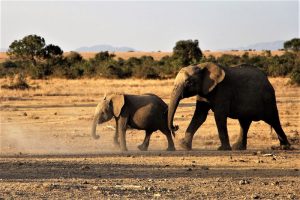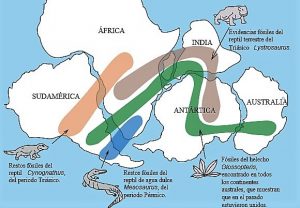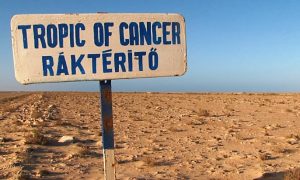Geographical space
It is important to remember that geography is the branch of science related to the identification and description of the Earth, and that it uses spatial awareness to try to understand why things exist in certain places. Geographical space is considered as land and can be related to the use of property. The ownership of geographical space is not only restricted to land. It also includes airspace and water ownership, issues that are decided at an international level. Other forms of ownership have recently been affirmed in other spaces, for example, in the radio bands of the electromagnetic spectrum or in cyberspace.
What is geographical space?
Geographical space is a word used within the field of geography to name the places that are organized by society, are extensions in which different groups of people who are related to each other and the environment that surrounds them.
What is geographical space for?
The geographical space is used to achieve land separations that belong to a given community, and that are managed on its behalf by delegated agencies. Also, through it, we get more knowledge of some aspects of nature because knowing a space’s environment, we can determine what species of flora and fauna exist in the place. At the same time, it allows us to know the industrial, agricultural or livestock aspect, through which we will have a good indicator of economic activity.
Characteristics of the geographical space
The main characteristics of the geographical space are the following:
- It is changeable: This means that the geographical space is transformed because it is subject to physical or human processes of short, medium and long duration that produce changes in it. For example, wind, rain or wave actions, or due to bridges, roads, cities, ports, agricultural fields constructions, and so on.
- It is accessible: Any geographical space in the world has a location to which we can access in some way, either absolute or relative.
- It has relation: Because there is a connection between natural and human components, which implies that the components are not isolated. If one of them is altered, it will have effects on the other, whether short, medium or long term.
- It has distribution: It is the way in which the different natural and human components are distributed in the geographical space. It is classified by density, which describes the number of times a component appears on a specific surface by concentration or dispersion, or by patterns.
- It is diverse: This means that it has variety and differences in quantity, characteristics and organization of the natural, social, economic, political and cultural components that distinguish one geographical space from another.
Components and elements
The components of the geographical space are as follows:
- Abiotic
- Biotic
- Anthropic
- Economic
- Political
- Cultural
Among the natural elements we can mention:
- Natural environment, such as relief and climate.
- Cultural environment, such as the history of the place.
Categories
Geographical space has five different types of categories, which are:
- Territory: is the space that has limits imposed by human beings, both political and administrative.
- Place: is associated with the space that is recognized from the name given to the place, can be recognized by geographical coordinates. They are the neighborhoods, towns or houses where one lives.
- Medium: it is the place where the different groups of people who inhabit a place interact.
- Landscape: all the things we can observe in a place, such as the relief, climate, vegetation, fauna and flora.
- Region: is a space characterized by the interrelationship of one or more components that give identity to a particular place.
Types
Geographical space representation types are:
- Maps
- Plans
- Sketch
- Balloon
- Atlas
- Cartographic projections
Diversity
The diversity of the geographical space is a combination that occurs between the different components, both natural and social, cultural, political and economic, which makes each place of the geographical space unrepeatable, as each has specific characteristics and combinations that make them unique and different from each other.
Location
In order to know the location of a point on the earth’s surface, it is necessary to have some reference and for this we use the geographic coordinate system which is formed by a network of imaginary lines called parallel and meridians. The basic references of the coordinate system are the Ecuador, the Greenwich Meridian, the poles, the polar circles and the tropics.
Transformation
Being the geographical spaces product of the relationship between human society and nature, there are moments in which their elements confront each other producing a series of changes that makes them not to be the same again. These changes can be the product of time implements, such as hurricanes, earthquakes and tornadoes; or it can be by the hand of man himself, who is in charge of eliminating objects belonging to a place with the sole objective of spreading.
Importance of the geographical space
Space is important because it can have an impact on behavior, both human and cultural, being an important factor, for example, in architecture, where it will have an impact on building design and structures, and on agriculture. It establishes the relationship that exists between communities and the places where they are developed.
Examples
Some examples we can cite of geographical space are:
- House
- Business
- Forests
- Countries, continents and regions
- Rivers, mountains and seas
How to cite this article?
Briceño V., Gabriela. (2019). Geographical space. Recovered on 24 February, 2024, de Euston96: https://www.euston96.com/en/geographical-space/










